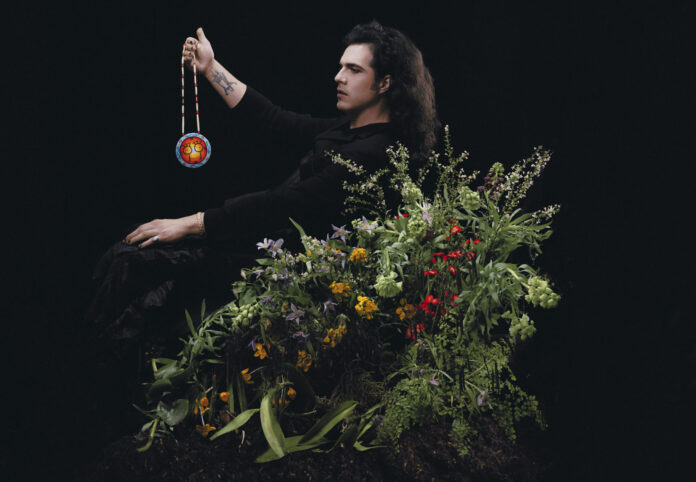On Sept. 17, an eleven-member jury selected Jeremy Dutcher’s Motewolonuwok as the best Canadian album of 2024. Dutcher received the prize at the Polaris Gala in Toronto.
The Tobique First Nation artist becomes the first person in Polaris history to win the prize twice. He won his first Polaris in 2018 for his album Wolastoqiyik Lintuwakonawa. His latest album, Motewolonuwok, features songs in Maliseet-Passamaquoddy and English.
Dutcher, who grew up on the banks of the Wolastoq, said it was an honour for him to receive this acknowledgement.
Singing in the Maliseet-Passamaquoddy language is important to Dutcher since it’s his native tongue.
Dutcher said his album contained English lyrics because he wanted to connect with his audience and share his personal stories and culture.
“It’s important for us to tell Canadians and even newcomers the true history about our land and what has gone on and how we’re healing,” said Dutcher.
He shared how we can always communicate through music regardless of language barriers. Using languages that his audiences understand adds to his purpose of sharing the story of his culture.
“I switched to English, but I’m still pointing to the same things, which is our language and our reclamation,” said Dutcher.
Dutcher shared that Maliseet-Passamaquoddy is a severely endangered language since less than 500 hundred people speak it.
“When I was growing up 20 years ago, I didn’t really have an opportunity to go to school and learn my language,” he said.
Two years ago, the first Wolastoqiyik immersion school opened on the outskirts of Fredericton.
Dutcher also sees his music as an opportunity to raise awareness about the efforts to keep his culture alive.
“It’s about telling hard stories, but it’s also about showing something beautiful and that’s why music’s a good vessel for that,” said Dutcher. “It’s a signal, I think, to the wider society to say our languages are still very vibrant.”
Dutcher reflected on Orange Shirt Day. He said this date is special for everyone to consider the importance of preserving Indigenous cultures and the healing process for his community.
“For a long time, up until recently, we weren’t on the same page. We weren’t even in the same book,” he said.
Dutcher said that when Indigenous and non-Indigenous people unite and share their art, music and literature, they have more opportunities to move forward. Inclusive spaces for everyone offer an opportunity for true dialogue and reconciliation.
“We are now in a moment where I think we’ve all come to understand the pretty hard truths that exist below the surface of this country.”
For Dutcher, winning the Polaris Music Prize for an album that is not entirely written in English and doesn’t contain French is a sign that people finally understand the relevance of preserving Indigenous culture in Canada.

